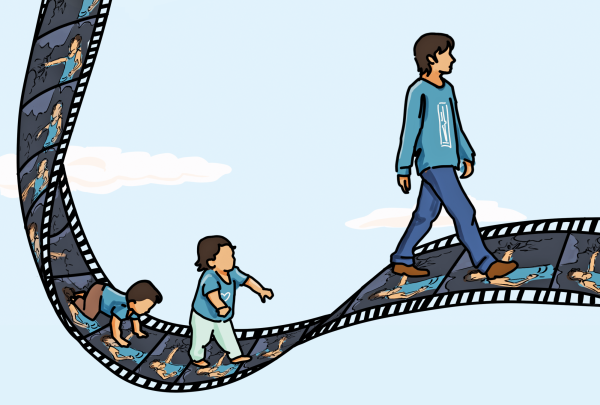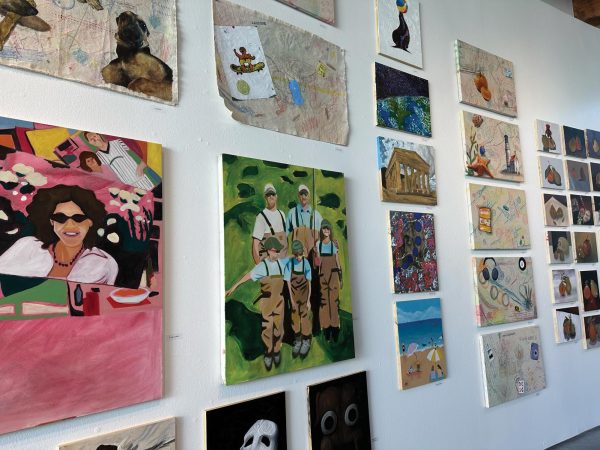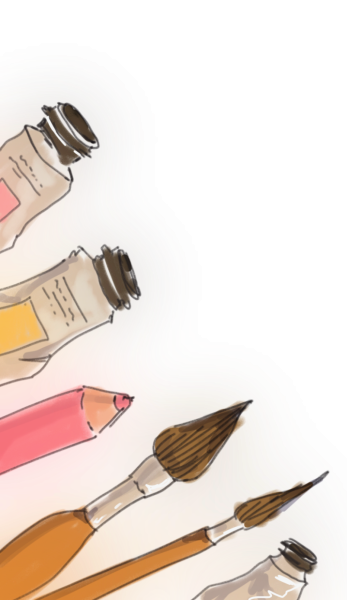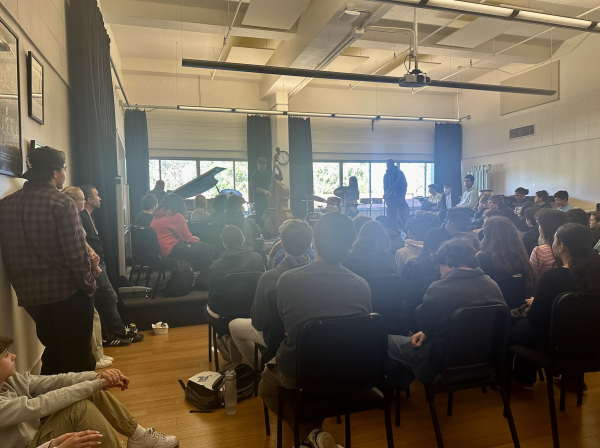Coming Out
The media impacts many youth in the LGBTQ community. Students reflect on the role the media plays in coming out.
April 28, 2021
When Jamie Kim-Worthington ’22 checked Instagram and saw all of the support and positivity that actor Elliot Page received after coming out as transgender, he said he felt very reassured. The response he observed from his community inspired him to come out himself. The act of “coming out” can be a very significant moment in the life of an LGBT individual, and the way that moment is represented in the media or by celebrities is often very impactful to those watching at home.
Celebrities have a postive impact on youth in the LGBTQ+ community.
“For me, celebrities coming out is great,” Kim-Worthington said. “I think [that] has been really helpful for LGBT kids. For people with unsupportive families, having a celebrity figure to look up to can be lifesaving.”
Natalie Ayeni ’21 agreedand said celebrities being open about their identities helps both members of the LGBT community and those who want to understand and support them.
“I think that celebrities coming out has had a very positive impact on LGBT youth,” Ayeni said. “Not only do we have role models to look up to, but those around us can get a better understanding of our experiences.”
Students question the significance of coming out.
While coming out is certainly a significant experience, some LGBT people question why they still have to do it at all. Casey Weisman ’22 said he believes that coming out is pointless and makes an unnecessary distinction between LGBT and straight people.
“It just makes us seem unequal from everyone else and the process is so uncomfortable,” Weisman said. “Queer people don’t owe their identity to anyone. Lately, I’ve seen a lot of people talking about how they’re never going come out and they’re just going live their life in a normal way, and I love that because it’s exactly what straight people get to do.”
Lavinia Tyagi ’23 said she thinks that while the concept of coming out can be flawed, it still provides an opportunity for LGBT people to connect to their peers and allies.
“I think the concept of coming out is three dimensional, because for some people it may present itself as a great way to talk about their sexuality with their family and friends,” Tyagi said. “For others, it could be thrust upon them by somebody else before they are ready. Moreover, some people don’t have the choice of coming out when they want to and are outed just by existing as they are.”
LGBTQ+ repersentation in the media has an impact on many.
As the media becomes more progressive and begins to represent more diverse stories, many movies, shows, and books have started to tell “coming out stories” when including LGBT characters. Notable examples are Love, Simon, Schitt’s Creek, Will and Grace and Sex Education. According to Ayeni, these stories can sometimes be uplifting, but can also be anxiety-inducing or unrelatable.
“I’ve always struggled with stories like that because they almost made it harder for me to feel comfortable coming out,” Ayeni said. “The few portrayals I saw usually ended with rejection by friends and family, or other harsh consequences. It never felt genuine or relatable, and it made me feel more scared of coming out.”
Kim-Worthington agreed that the way coming out is represented in media is often flawed. He said he does not feel very connected to many of them, as they can be overdramatic. However, he said they can be very valuable to others.
“I believe that coming out doesn’t have to be a big deal,” Kim-Worthington said. “I don’t really love coming out stories, as they can be dramatized and overemotional in my opinion. However, sexuality and gender are a big deal to some people. There’s nothing wrong with wanting to have an in-depth or emotional coming out.”
Tyagi added that coming out in media or online can often be played as a joke, which she said is insulting and belittles the experiences of LGBT individuals.
“There is a frustratingly large amount of ‘pranks’ about coming out as a joke or for a shock factor that garners views, and in turn, money,” Tyagi said. ” [It] makes a mockery of the LGBT community and often leads to onlookers thinking that being LGBT is a choice.”
According to scholars.org, media saturation and press freedom have both been statistically associated with increased inclusivity for LGBT+ people in younger generations. While young people have had more exposure to diversity in the media and in real life because of the recent increase in diverse stories, the impact of seeing LGBT stories cannot be understated for older people, either. The article’s conclusion indicates that free media is essential for expanding gay and trans rights and improving the public perception of the LGBT community.
Kim-Worthington said this perception can differ, however, depending on the area. He believes that a more liberal city like Los Angeles can have a wildly different socio-political environment than another.
“I think coming out in our Los Angeles bubble is very different than how someone who lives in, say, rural Alabama might come out,” Kim-Worthington said. “I’m privileged enough to be able to come out with relative ease and no turmoil, so my thought process was initially that coming out isn’t that big of a deal. But in places where being gay or transgender is deadly, coming out can be incredibly important.”












































